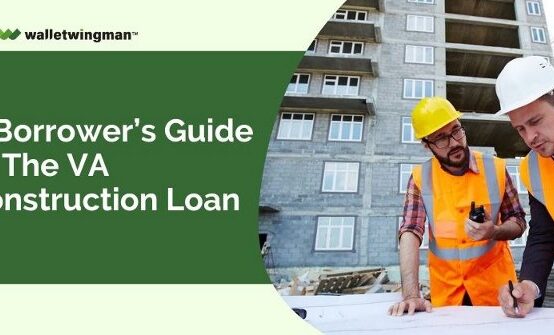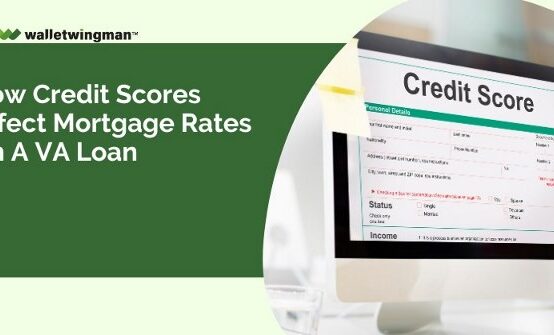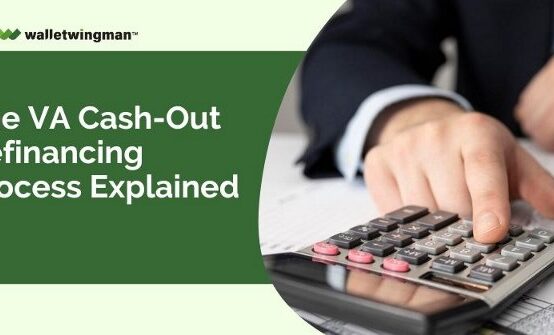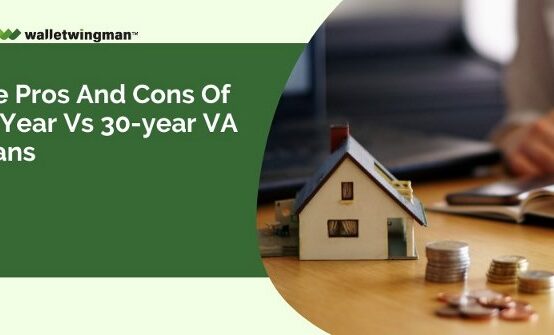We’ve covered various aspects of the VA home loan process in the past to give home buyers and borrowers a better sense of how this program works.
Today, we shift our focus to the house hunting process, with some tips for making an offer on a house when using a VA loan.
The offer is a critical step in the home buying process, especially in a competitive market where sellers receive multiple offers. So you’ll want to do everything you can to increase your chance of success. This guide will show you how to make a smart offer on a home with a VA loan.

Making an Offer with a VA Loan
The process of making an offer on a house is the same regardless of the type of loan being used. You fill out a purchase agreement with the amount being offered, negotiate with the seller, and either have your offer accepted or rejected.
But there are some steps you can take to increase the chance that the seller will accept your offer, and those are the strategies we will explore here today.

Overview of the Offer Process
Let’s start by reviewing how the offer process works when using a VA loan. Here are the basic steps that lead up to and follow the all-important offer stage:
- The borrower obtains a Certificate of Eligibility and applies for a VA loan.
- The mortgage lender pre-approves the borrower for a certain loan amount.
- The home buyer gets a real estate agent and starts looking at houses.
- The buyer finds a suitable property and decides to make an offer.
- The agent analyzes comparable sales data to validate the asking price.
- The buyer decides on an offer amount and submits it to the listing agent.
- The seller will either accept the offer as-is, reject it, or negotiate the terms.
Aside from step #1, regarding the Certificate of Eligibility, most of this process is the same for VA and conventional loan borrowers alike. Additionally, it’s essential for VA loan applicants to ensure they have their VA loan statement of service ready, as the lender may require it during the application process.
Comparing the List Price to Comparable Sales
Let’s pause on step #5 for a moment. It’s arguably the most crucial step when offering a house with a VA loan. When you find a home that meets all of your needs and falls within your budget, the next logical step is to submit a purchase offer to the seller.
But before you put your offer on paper, you’ll want to compare the asking price to recent sales in the area. This is what real estate agents refer to as comparable sales or comps.
The goal here is to review the sale prices for similar homes that have sold recently in the same area. It’s the best way to determine the current “market value” for a particular house. This kind of research will help you make a competitive offer while avoiding a situation where you overpay.
Of course, you have to take local real estate market conditions into account, as well.
- In a highly competitive market where sellers receive multiple competing offers, a buyer might end up paying more than the actual list price to secure the deal.
It’s crucial to ensure that the homes you’re interested in not only meet your needs but also fulfill the VA loan home requirements and VA minimum property requirements. Knowing these requirements can help you assess whether a property aligns with your financing options and avoid potential issues during the purchasing process.
- In a slower real estate scene, where homes tend to stay on the market for more extended periods of time, you might have more negotiating room when it comes to the purchase price.
This is something your real estate agent should advise you on before making an offer.

Myths and Misconceptions Among Sellers
For decades, VA-guaranteed mortgage loans have had a certain stigma associated with them, in the eyes of sellers and their listing agents. Some sellers have been reluctant to accept offers associated with a VA loan, because they think it will make it harder to close or bring additional repair costs.
However, current data and reports show that VA loans have a similar closing success rate as conventional mortgage financing. So, this stigma is based more on myth than reality.
In short, there’s no valid reason a seller would reject an offer just because the borrower is using a VA loan. But this kind of thing still happens on occasion, unfortunately, so it’s something you should be aware of when house hunting.
VA Loan for Second Home
For some prospective homebuyers, the option of using a VA loan for a second home may be considered. It’s important to understand that VA loans can indeed be used for second homes, providing certain criteria are met.
While the primary purpose of VA loans is to assist veterans, eligible surviving spouses, and active-duty service members in purchasing a primary residence, there are provisions for using VA loans for second homes.
If you’re considering using a VA loan for a second home, it’s essential to familiarize yourself with the VA second home loan requirements. These requirements may include restrictions on the use of the property, such as occupancy requirements and specific eligibility criteria that must be met for the second home to qualify for VA financing.
When making an offer on a second home with a VA loan, similar principles apply as with purchasing a primary residence. You’ll want to ensure that the property meets your needs, falls within your budget, and aligns with the VA loan home requirements.
Additionally, working with a knowledgeable real estate agent who understands VA loans and the local market can be invaluable in navigating the process of purchasing a second home with a VA loan.
While using a VA loan for a second home may offer certain advantages, such as competitive interest rates and no down payment requirement for eligible borrowers, it’s essential to consider your financial situation and long-term plans before proceeding.
By thoroughly understanding the VA loan for second home options and requirements, you can make a decision that aligns with your homeownership goals.

Tips for Getting Your Offer Accepted
If you’ve already decided that the VA loan program is right for you, you should move forward despite these outdated myths and misconceptions. It would help if you also did everything you could to increase the chance that your offer gets accepted.
Here are some tips, strategies and best practices for making a strong offer.
- Pre-Approval, Not Pre-Qualification: Get a full VA pre-approval letter from your mortgage lender. This shows sellers that you’re serious about buying and have been vetted financially, making your offer more credible.
- Know Your Budget: Before you make an offer on a house, do some basic budgeting to determine the maximum amount you can afford. This will help you avoid overstretching yourself with an ambitious offer.
- Choose Homes Carefully: When house hunting, focus on properties that are likely eligible for VA loan financing. The truth is that most properties that are in decent shape can qualify for VA financing. But you’ll probably want to steer clear of “fixer-uppers” and homes that are not move-in ready. Ensure that the properties you consider meet the VA minimum property requirements to streamline the financing process and avoid potential issues during the appraisal.
- Work a Savvy Agent: Choose a real estate agent familiar with VA loans and the local market. Use their expertise to navigate the nuances of the offer and negotiating process.
- Make a Strong Offer: Consider the potential of a VA renovation loan when assessing properties. This specialized loan program allows you to finance both the purchase price of the home and the cost of renovations or repairs into a single loan. If you’re eyeing a property that needs some upgrades to meet your preferences or requirements, a VA renovation loan could be a valuable option to explore.
- Choosing the Right VA Loan Option: When exploring VA loan options, it’s essential to understand the variety of programs available to suit different needs. In addition to the traditional VA home loan, eligible borrowers may also consider specialized financing such as the VA renovation loan and the VA construction loan. While the VA renovation loan facilitates the purchase of a home in need of repairs or upgrades, the VA construction loan is designed for those looking to build a new home from the ground up. With this financing solution, veterans and service members can finance the construction costs, land purchase (if applicable), and permanent mortgage into a single loan, simplifying the process of building their dream home.
- Minimize Contingencies: Consider waiving some of your purchase contingencies, such as a financing contingency, if you’ve already been pre-approved by a lender. With all other things being equal, an offer with fewer “strings attached” is more likely to be accepted.
- Pay Earnest Money: Show good faith with a higher earnest money deposit. If a typical earnest money deposit in your area ranges from 1% to 2% of the purchase price, consider offering 3% or more. This shows commitment and strengthens your position.
- Be Flexible: Try to be as flexible as possible regarding the closing date and overall timeline. If the seller wants to close ASAP, accommodating them could increase the chance of your offer being accepted. Research and preparation can help you make a strong offer on a house when using a VA loan. By understanding the market and having a solid plan in place, you can increase your chance for home buying success!
Research and preparation can help you make a strong offer on a house when using a VA loan. By understanding the market and having a solid plan in place, you can increase your chance for home buying success!


 A Borrower’s Guide to the VA Construction Loan
A Borrower’s Guide to the VA Construction Loan  How to Buy a Condo Unit with a VA Mortgage Loan
How to Buy a Condo Unit with a VA Mortgage Loan  How Credit Scores Affect Mortgage Rates on a VA Loan
How Credit Scores Affect Mortgage Rates on a VA Loan  How Much Can I Borrow When Using a VA Loan to Buy a House?
How Much Can I Borrow When Using a VA Loan to Buy a House?  The VA Cash-Out Refinancing Process Explained
The VA Cash-Out Refinancing Process Explained  The Pros and Cons of 15-Year vs 30-year VA loans
The Pros and Cons of 15-Year vs 30-year VA loans 